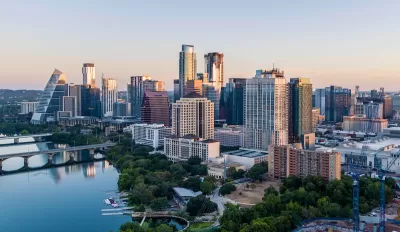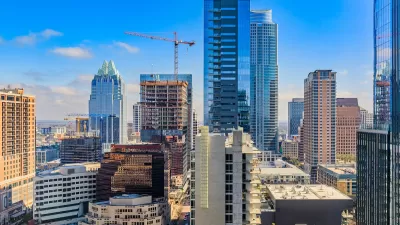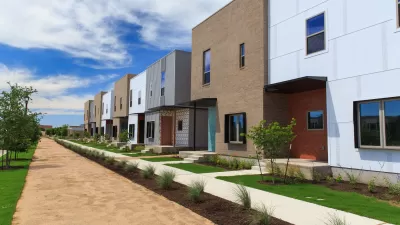How the tension between housing as an asset and as an essential good keeps the supply inadequate and costs high.

Using Austin, Texas as an example, Derek Thompson explains America’s ‘magical thinking’ about housing in an article for The Atlantic.
According to Thompson, “Since the beginning of the pandemic, even as rent inflation has gone berserk nationwide, no city has experienced anything like Austin’s growth in housing costs. In 2021, rents rose at the most furious annual rate in the city’s history. In 2022, rent growth exceeded every other large city in the country, as Austin’s median rent nearly doubled.”
Unlike many other cities, Thompson writes, Austin “experimented with the uncommon strategy of actually building enough homes for people to live in. This year, Austin is expected to add more apartment units as a share of its existing inventory than any other city in the country.”
This is, unequivocally, a good thing. But an article in The Wall Street Journal takes an alarming tone, calling the resulting drop in rent prices a ‘downswing.’
“If rising rent prices are bad, but falling rent prices are also bad, what exactly are we supposed to root for in the U.S. housing market?” Thompson asks. This may depend on whether you view housing as an investment and an asset or an essential good and human right. For Thompson, “Housing is, in fact, both a present need and a future investment. In a dual-side marketplace, I suppose you could argue that any change in price is bad for some party. But the externalities of housing abundance outweigh the loss to any particular party rooting to profit from scarcity.”
FULL STORY: America’s Magical Thinking About Housing

Maui's Vacation Rental Debate Turns Ugly
Verbal attacks, misinformation campaigns and fistfights plague a high-stakes debate to convert thousands of vacation rentals into long-term housing.

Planetizen Federal Action Tracker
A weekly monitor of how Trump’s orders and actions are impacting planners and planning in America.

San Francisco Suspends Traffic Calming Amidst Record Deaths
Citing “a challenging fiscal landscape,” the city will cease the program on the heels of 42 traffic deaths, including 24 pedestrians.

Adaptive Reuse Will Create Housing in a Suburban Texas Strip Mall
A developer is reimagining a strip mall property as a mixed-use complex with housing and retail.

Study: Anti-Homelessness Laws Don’t Work
Research shows that punitive measures that criminalized unhoused people don’t help reduce homelessness.

In U.S., Urban Gondolas Face Uphill Battle
Cities in Latin America and Europe have embraced aerial transitways — AKA gondolas — as sustainable, convenient urban transport, especially in tricky geographies. American cities have yet to catch up.
Urban Design for Planners 1: Software Tools
This six-course series explores essential urban design concepts using open source software and equips planners with the tools they need to participate fully in the urban design process.
Planning for Universal Design
Learn the tools for implementing Universal Design in planning regulations.
Heyer Gruel & Associates PA
JM Goldson LLC
Custer County Colorado
City of Camden Redevelopment Agency
City of Astoria
Transportation Research & Education Center (TREC) at Portland State University
Jefferson Parish Government
Camden Redevelopment Agency
City of Claremont





























